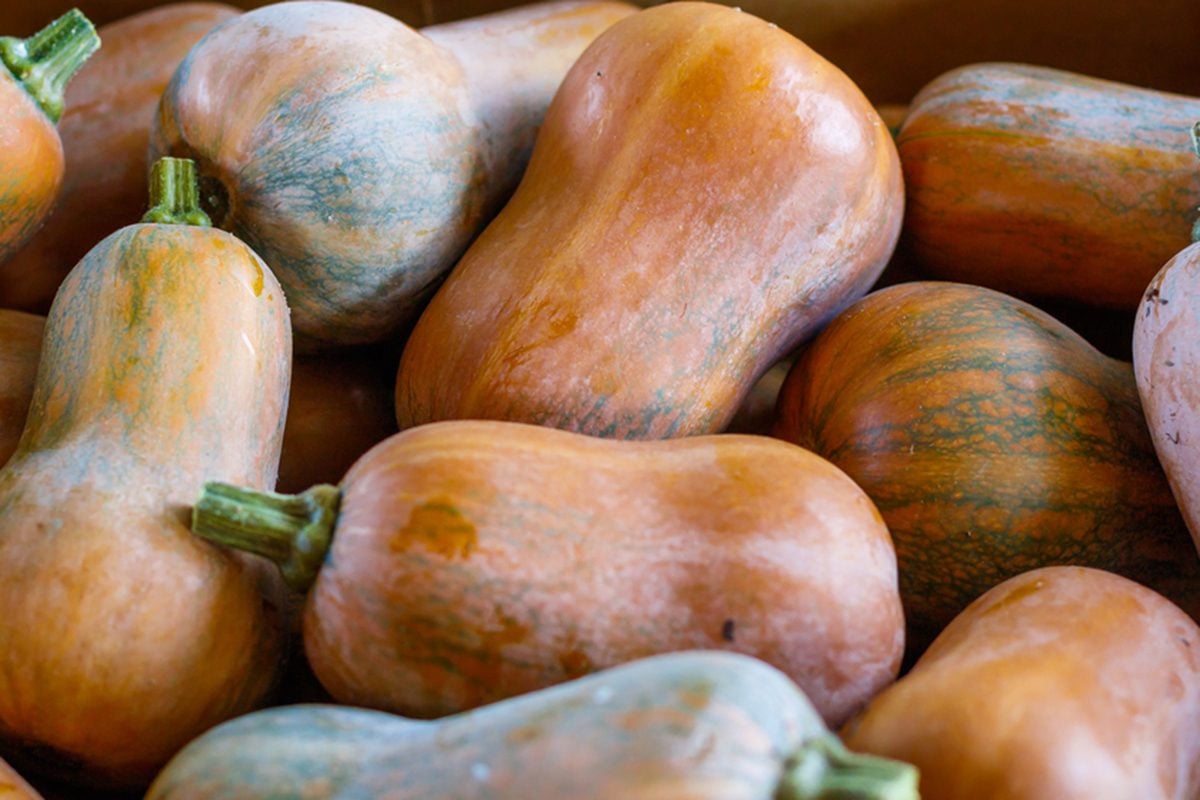
Honeynut squash might look like a mini butternut squash, but it packs a punch in flavor and nutrition. This petite squash, about half the size of its cousin, boasts a rich, sweet taste that intensifies when roasted. Why should you care about honeynut squash? It's not just delicious; it's also loaded with vitamins A and C, making it a powerhouse for your immune system. Plus, its smaller size means less hassle when prepping meals. Whether you're a seasoned chef or a kitchen newbie, honeynut squash can elevate your dishes with minimal effort. Ready to learn more? Let's dive into 20 fascinating facts about this tiny but mighty vegetable!
Key Takeaways:
- Honeynut squash is a sweet, small variety of squash that's rich in nutrients and perfect for single servings. It's easy to grow, delicious to eat, and can be used in a variety of culinary creations.
- Whether you're a chef or a home cook, honeynut squash is a versatile and nutritious ingredient to add to your recipes. From roasting to stuffing, this delightful vegetable can bring a unique and delicious twist to your dishes.
What is Honeynut Squash?
Honeynut squash is a smaller, sweeter cousin of the butternut squash. It's packed with flavor and nutrients, making it a favorite among chefs and home cooks alike. Let's dive into some fascinating facts about this delightful vegetable.
-
Honeynut squash was developed by crossing butternut squash with buttercup squash to create a smaller, sweeter variety.
-
It was first introduced to the public in 2015, making it a relatively new addition to the squash family.
-
The skin of honeynut squash is edible, unlike many other types of squash that require peeling.
-
This squash is rich in beta-carotene, which is converted into vitamin A in the body, promoting good vision and immune function.
-
Honeynut squash typically weighs between 1 to 2 pounds, making it perfect for single servings or small households.
How to Grow Honeynut Squash
Growing honeynut squash can be a rewarding experience for gardeners. Here are some interesting facts about cultivating this tasty vegetable.
-
Honeynut squash plants need full sun and well-drained soil to thrive.
-
They require a long growing season, typically around 100 days from planting to harvest.
-
The plants are vining, so they need plenty of space to spread out or a trellis to climb.
-
Honeynut squash is susceptible to pests like squash bugs and vine borers, so regular monitoring is essential.
-
Harvesting is usually done in late summer or early fall when the skin turns a deep orange color.
Nutritional Benefits of Honeynut Squash
Honeynut squash isn't just delicious; it's also packed with nutrients. Here are some key nutritional benefits.
-
One cup of cooked honeynut squash contains about 80 calories, making it a low-calorie food option.
-
It's an excellent source of dietary fiber, which aids in digestion and helps maintain a healthy weight.
-
The squash is high in potassium, which is essential for maintaining healthy blood pressure levels.
-
It also contains significant amounts of vitamin C, which supports the immune system and skin health.
-
Honeynut squash provides antioxidants that help protect the body from free radicals and reduce inflammation.
Culinary Uses of Honeynut Squash
Honeynut squash is incredibly versatile in the kitchen. Here are some ways you can use it in your cooking.
-
Roasting honeynut squash brings out its natural sweetness and makes for a delicious side dish.
-
It can be pureed and added to soups for a creamy texture and rich flavor.
-
Honeynut squash can be stuffed with grains, vegetables, or meats for a hearty main course.
-
It pairs well with spices like cinnamon, nutmeg, and cumin, enhancing its sweet and savory notes.
-
The squash can also be used in desserts, such as pies and muffins, adding a unique twist to traditional recipes.
The Sweet Truth About Honeynut Squash
Honeynut squash isn't just a smaller version of butternut squash. Packed with nutrients, it offers a sweeter, richer flavor. This little squash is a powerhouse of vitamins and minerals, making it a great addition to any diet. Its compact size makes it perfect for single servings or small families. Plus, it's easy to cook—just roast, sauté, or even microwave it.
Farmers and chefs alike appreciate its versatility and sustainability. Honeynut squash has a shorter growing season and requires fewer resources, making it an eco-friendly choice. Whether you're a seasoned cook or a kitchen newbie, this squash is a must-try.
So next time you're at the market, grab a honeynut squash. Your taste buds and your body will thank you. Enjoy the sweet, nutty goodness and reap the health benefits.
Frequently Asked Questions
Was this page helpful?
Our commitment to delivering trustworthy and engaging content is at the heart of what we do. Each fact on our site is contributed by real users like you, bringing a wealth of diverse insights and information. To ensure the highest standards of accuracy and reliability, our dedicated editors meticulously review each submission. This process guarantees that the facts we share are not only fascinating but also credible. Trust in our commitment to quality and authenticity as you explore and learn with us.


